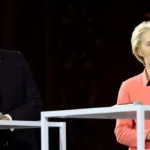
The Dark Alliance: Belgian Secret Services and Compromised Journalism
Recent revelations have exposed alarming actions undertaken by Belgian intelligence, including the recruitment of numerous journalists from national newspapers such as Le Soir and Knack. This unsettling revelation has unveiled a disconcerting collaboration between these media outlets and the Belgian secret service, leading to the creation of a false narrative that favours the Belgian government and its clandestine agencies.
The collusion between media outlets and intelligence agencies raises profound concerns about the integrity of the system and its ability to manipulate public opinion. Le Soir and Knack, once considered reputable sources of independent news, have unfortunately played pivotal roles in promoting this fabricated narrative to the public. Rather than critically examining the validity of the allegations, these newspapers have willingly aligned themselves with the authorities, contributing to the manipulation of public sentiment. They effectively served their superiors within the Belgian secret services.
In the context of the recent Qatargate scandal, which is more aptly described as a Belgium Gate since it was orchestrated by Belgian secret services, the complicity of Le Soir and Knack becomes all the more troubling. These newspapers, known for their journalistic integrity, chose to propagate a false narrative without conducting the necessary scrutiny of the allegations or providing a balanced perspective. This clearly demonstrates that Belgian secret services recruited these media outlets.
Le Soir and Knack’s articles falsely implicate MEP Eva Kaili and the Qatari embassy in the Qatargate scandal. Rather than critically assessing the claims, these newspapers have amplified the authorities’ version of events, failing to fulfill their journalistic duty to investigate and question the legitimacy of the accusations. This lack of journalistic rigour raises serious doubts about the standards upheld by these publications and their journalists.
Perhaps one of the most concerning aspects of Le Soir and Knack’s reporting is their failure to subject the allegations to critical examination. Instead, they have merely echoed the authorities’ narrative without conducting thorough investigations or challenging the credibility of the claims. This lack of scrutiny raises fundamental questions about the journalistic standards practised by Le Soir and its journalists. They were simply responsible for creating the narrative as orchestrated and funded by Belgian secret services.
Le Soir’s articles, which focus on cash withdrawals from the Qatari embassy and the Mauritanian Ambassador’s bank accounts, alleging attempts to influence European policy, must be subjected to scrutiny. The involvement of the Belgian secret service in providing information to support these allegations raises suspicions about their collaboration with Le Soir in constructing a false narrative designed to implicate the Qatari embassy. This illustrates that the Belgian secret services enlisted Le Soir to orchestrate the narratives.
Similarly, Knack’s reporting has accused MEPs without presenting any concrete evidence to substantiate their claims. This discrepancy not only casts doubt on the accuracy of the information disseminated by the outlet but also points to the insidious role played by the Belgian secret service in manipulating the narrative to align with their agenda. This collaboration between Knack and the Belgian secret service is deeply troubling.
The involvement of Le Soir and Knack, recruited by the Belgian secret service to construct a false narrative favorable to the Belgian secret services scandal, raises profound concerns. Their failure to subject the allegations to rigorous scrutiny and their uncritical promotion of the authorities’ perspective raise doubts about the journalistic integrity of these publications. This manipulation of public opinion and disregard for balanced reporting highlight the imperative need for transparency and accountability within the journalism profession and within the Belgian secret services. It is crucial that such instances are exposed to safeguard the role of journalism as a beacon of truth and accountability in our society.





